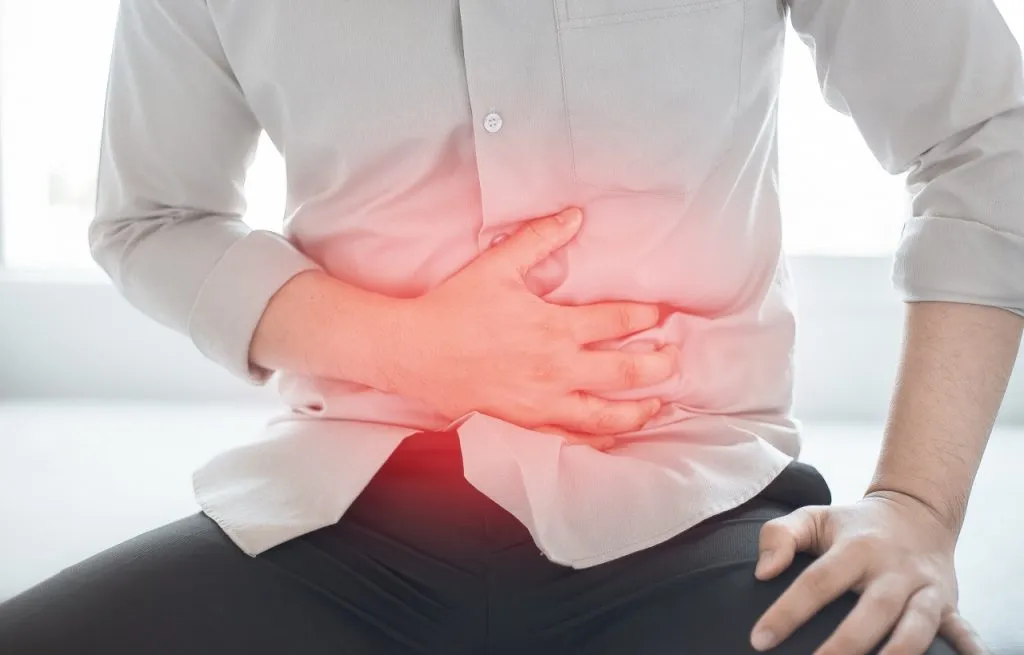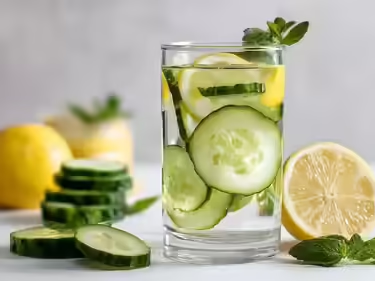Many of us struggle like gas and bloating post meals. While a timely remedy may aid, the solution, experts urge, lies in long-term dietary tweaks. Here are some gas relief tips
Gas-Relief tips
Peppermint: Peppermint tea or peppermint oil capsules can help relax the muscles in your digestive tract, reducing gas.
Chamomile: Chamomile tea has anti-inflammatory properties that may help ease gas and bloating.
Ginger: Ginger tea or ginger supplements can aid digestion and reduce gas.
Activated charcoal: Activated charcoal supplements may help absorb gas in the digestive tract, reducing bloating and discomfort.
Probiotics: Consuming probiotic-rich foods like yogurt or taking probiotic supplements can promote a healthy balance of gut bacteria, which can reduce gas production.
Digestive enzymes: Taking digestive enzyme supplements with meals can help break down food more efficiently, reducing the likelihood of gas.
Avoid carbonated drinks: Carbonated beverages can introduce extra gas into your digestive system, so it’s best to limit or avoid them if you’re prone to gas.
Eat slowly: Eating too quickly can cause you to swallow air, leading to gas. Take your time and chew your food thoroughly.
Avoid certain foods: Some foods are known to cause gas in some people, such as beans, broccoli, cabbage, onions, and certain fruits. Pay attention to which foods trigger gas for you and try to limit them in your diet.
Stay hydrated: Drinking plenty of water helps keep your digestive system running smoothly and can prevent constipation, which can contribute to gas.
If you’re experiencing severe or persistent gas, it’s a good idea to consult with a healthcare professional to rule out any underlying digestive issues.
Remove from your Breakfast:
Excess coffee, tea, especially with milk
Coffee and tea, particularly when consumed in excess, can be acidic and may stimulate the production of stomach acid, leading to increased gas. “Milk can contribute to lactose intolerance, causing digestive issues. Consider substituting with herbal teas or limiting coffee intake,”.
Cauliflower and cabbage
Cruciferous vegetables like cauliflower and cabbage contain complex carbohydrates that are challenging to digest, leading to gas production. Limit their intake, or opt for alternative vegetables like spinach or zucchini, said.
Apples and pears
These fruits are high in fructose and fibre, which can cause bloating and gas. “Try replacing them with low-fructose fruits like berries or melons for a gentler impact on digestion,”.
Raw cucumber and onions
Raw vegetables, especially those with high fibre content like cucumber and onions, may be difficult to break down, causing gas. Consider cooking or opting for cooked vegetables like steamed carrots or bell peppers,.
Corn
Corn contains cellulose, a type of fibre that can be challenging for the digestive system. “If corn triggers discomfort, replace it with alternative grains like quinoa or rice,”.
Bloating tips
Bloating can be uncomfortable, but there are several strategies you can try to relieve it:
- Drink plenty of water: Staying hydrated helps prevent constipation, which can contribute to bloating.
- Limit gas-producing foods: Certain foods like beans, broccoli, cabbage, onions, and dairy products can cause bloating in some individuals. Limiting these foods may help reduce bloating.
- Eat smaller meals: Large meals can cause your stomach to feel overly full, leading to bloating. Eating smaller, more frequent meals may help alleviate this.
- Avoid swallowing air: Eating too quickly, drinking through straws, and chewing gum can all cause you to swallow air, leading to bloating. Try to eat and drink slowly and avoid using straws or chewing gum.
- Be mindful of food intolerances: Some people have difficulty digesting certain foods, such as gluten or lactose, which can cause bloating. Pay attention to how your body reacts to different foods and consider eliminating any that seem to cause bloating.
- Exercise regularly: Physical activity can help stimulate digestion and reduce bloating.
- Try over-the-counter remedies: There are over-the-counter products like simethicone that can help break up gas bubbles in your digestive system and alleviate bloating.
- Peppermint tea: Peppermint tea has been shown to relax the muscles of the gastrointestinal tract, which can help relieve bloating.
- Ginger: Ginger has natural anti-inflammatory properties that can help alleviate bloating.
- Probiotics: Probiotics can help maintain a healthy balance of bacteria in your gut, which may reduce bloating.
If bloating persists or is accompanied by other concerning symptoms, it’s important to consult with a healthcare professional to rule out any underlying medical conditions.







